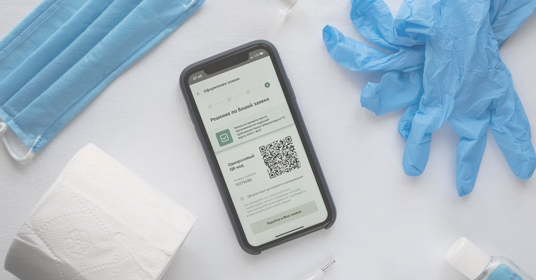Shop with confidence
Shop safely and securely with us. Your customer information is secure with us.
Fast deliveries
The delivery time is normally 2-3 days unless otherwise specified for the product.
Secure payments
We offer payments both via card payment and PayPal.
Your test, straight to the mailbox
Nordictest was started at the beginning of 2021 and since then we have sold hundreds of tests to private individuals in the Nordics. It all started when we saw a low supply of rapid tests in the local shops and pharmacies. That's why we chose to develop our own test, where you get answers immediately.
This is to avoid unnecessary care queues and to avoid having to see a doctor physically. In the event of a positive test, you should of course see a doctor/medical care. We recommend that everyone follow the existing recommendations and the Infection Prevention Act.
Customers demand!

Do you have a sore throat?
We have filled the warehouse with strep throat tests to be able to cover the great need! Buy your strep throat test with us at Nordictest.

Urinary tract infection?
Many people get urinary tract infections during the winter months. Order a bunch of tests at home so you have them if needed.

Check for all STDs +
One of our best selling tests! Test yourself for chlamydia, gonorrhea and syphilis. The test is discreetly sent to your mailbox.

Your test is sent discreetly
All our orders are sent discreetly directly to your mailbox. There is nothing on the package that can reveal what you have ordered.

Results within 15 minutes
Our tests are rapid tests, which means you will receive an answer to the test within 15 minutes after you have performed it.

Why should I test myself?
Understand Your Body and Improve Your Health with Nordictest
Keep an Eye on Your Inner Self
Understanding what's happening in your body - with insights into your values, you can take control of your well-being and make any necessary adjustments to your lifestyle.
Healthy Eating
A healthy and varied diet is said to be a key to reducing the risk of illness. With full insight into your health data, you can see the balance in your vitamins, minerals, and hormones.
Optimize Your Health
Your lifestyle choices affect your overall health. Based on your values, you can create conditions for increased well-being - and a healthier life.
High-Quality Rapid Tests
Here you can find CE-marked and extremely reliable home tests at the very cheapest prices online. We deliver quickly directly to your mailbox, in small and discreet packages.
It hasn't always been obvious that one can now test oneself in one's own home. Technology is advancing faster than ever, as is research. Just a few years ago, one had to visit a doctor to get tested for strep throat. Today, you can order a rapid test and test yourself at home in peace and quiet. Isn't that cool?
Test yourself at home in peace and quiet
All our tests are shipped discreetly and securely directly to your mailbox. Your package is discreetly packaged with no clear indications of its contents. We offer a 14-day return policy on all our orders. This only applies to unopened packages.
Wide selection of rapid tests
We at Nordictest are constantly working to expand our range with new brands and tests. Some of our best-selling and appreciated tests are:
- Sexually Transmitted Disease Test - Test yourself for the most common STDs: chlamydia, gonorrhea, and syphilis
- Mycoplasma - Test for mycoplasma in your own home
- Strep Throat (Step A) - Test yourself for strep throat, right in your home without having to see a doctor.
- Prostate PSA - Easily measure your prostate level with our PSA self-test. The test provides a quick and clear answer.
- Urinary Tract Infection - Self-tests for urinary tract infections, specially designed for easy use at home at a low cost.
And many more! See all our tests here
Buy rapid tests online with fast delivery
Nordictest was founded in 2021 and has since then grown from being a small online store for self-tests to one of the largest in the Nordic region in its field.
We always strive to deliver your order as quickly as possible. If you order a test online before 2 pm, we usually ship your package the same day. The package is typically delivered within two working days.
Order self-tests online in different pack sizes
With us, you can find everything from 1-pack to 5-pack and bulk packs (30-pack).
Is it cheaper to buy in bulk?
The price per test becomes lower when you buy larger packages like 3-pack or 5-pack.
Our Massage Slippers (Reflexology) Provide a Deep Foot Massage
Published 16 Mar 14:54 by NordictestThe massage slippers from Nordictest use reflexology, one of the world's oldest healing methods. They provide an effective foot massage. Special cushi...
Best Fuel Cell Breathalyzer for Safe Driving
Published 13 Mar 12:32 byChoosing the right breathalyzer is crucial for your safety. Fuel cell breathalyzers, such as the D100 from Nordictest, provide reliable results. They ...
What is CRP and Why is it Important to Measure?
Published 21 Sep 09:21 by NordictestCRP, or C-reactive protein, is a substance produced by the liver and released into the blood in response to inflammation. It is an important tool for ...




